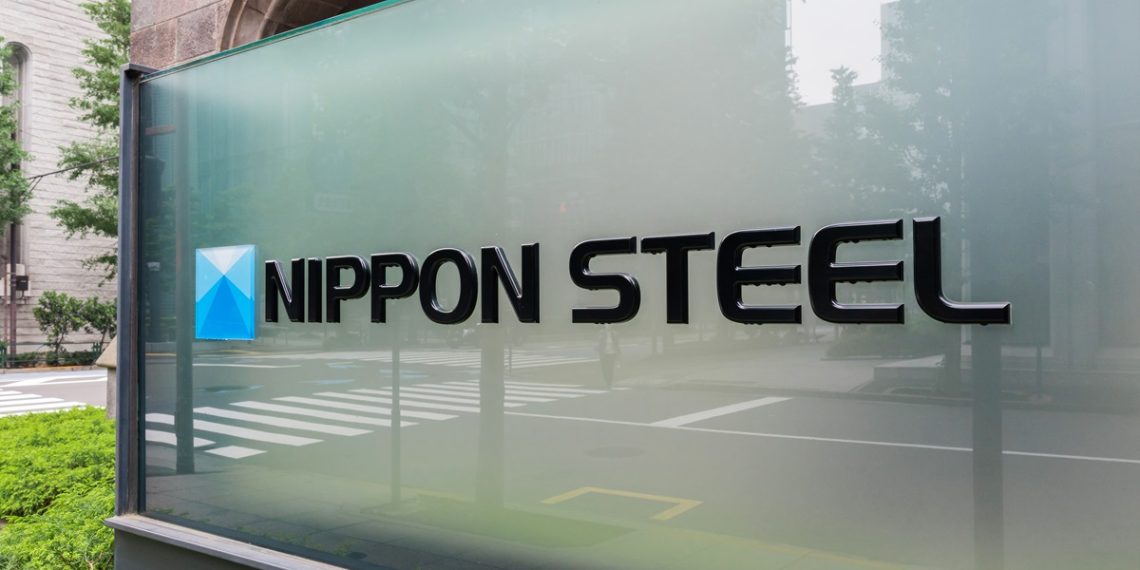Japan’s Nippon Steel has made a bold play to acquire US Steel at US$55 per share, valuing the 122-year-old American steelmaker at around US$14.1B (including debt, US$14.9B). The offer represents a roughly 40% premium to US Steel’s closing stock price as at Friday, 18 December.
“We are confident that … this combination is truly best for all,” commented US Steel CEO David Burritt on a conference call to investors. “Today’s announcement also benefits the US — ensuring a competitive, domestic steel industry, while strengthening our presence globally.”
According to the World Steel Association, Nippon’s crude steel production was 44.37Mt, ranking it fourth in the world in 2022. US Steel, by comparison ranked at 27th, coming after US producers Nucor and Cleveland-Cliffs. With the acquisition of US Steel, Nippon Steel’s production would rank third worldwide, making it a significant player in the global steel industry.
The US, being the world’s fourth-largest producer of crude steel after China, India, and Japan, presents a strong market for steel products, especially with the increasing demand for electric vehicles (EVs).
US Steel, founded in 1901 by US magnates, Andrew Carnegie, J.P. Morgan, and Charles Schwab, became intertwined with the United States’ industrial recovery following the Great Depression and WWII. The Pittsburgh-based company’s shares have underperformed for years, following several quarters of falling revenue and profit, making it an attractive takeover target for rivals looking to add an automobile industry steelmaker.
Nippon president Eiji Hashimoto commented, “We are excited that this transaction brings together two companies with world-leading technologies and manufacturing capabilities, demonstrating our mission to serve customers worldwide, as well as our commitment to building a more environmentally friendly society through the decarbonization of steel.”
One goal of the deal is to create a stronger position in steel products specifically for growing American EV demand. Though Nippon Steel is working to strengthen its business by hiking prices and boosting the share of high-value products in its sales, the company still sees more overseas crude steel capacity as key to long-term growth.
The acquisition of US Steel will help Nippon move towards its other goal of 100M metric tons of global crude steel capacity, while significantly expanding its production in the US, where steel prices are expected to rise. Nippon said the synergies will come from pooling advanced production technology and know-how in product development, operations, energy savings, and recycling.
All of US Steel’s commitments with its employees, including all collective bargaining agreements in place with its union, will be honoured, Nippon said. Despite these assurances, the United Steelworkers union, which had endorsed heavily unionized Cliffs as the acquirer, said it is opposed to the sale to Nippon because it did not have faith in labour agreements being upheld.
“Our union intends to exercise the full measure of our agreements to ensure that whatever happens next with US Steel, we protect the good, family-sustaining jobs we bargained.” United Steelworkers said.
In its pact with US Steel, United Steelworkers are not afforded the right to block the company’s sale if the acquirer commits to preserve existing labour agreements.
The transaction with Nippon is expected to close around October in the second or third quarter of 2024, subject to regulatory approvals. The Committee on Foreign Investment in the United States, a panel that scrutinizes deals for potential national security risks, is expected to review the transaction, though most Japanese acquirers tend to complete their deals with few issues. If regulators shoot down the deal, Nippon will owe US Steel a US$565M break-up fee.
Beyond car makers, US Steel supplies the renewable energy industry and stands to benefit from the Inflation Reduction Act (IRA), which provides tax credits and other incentives for such projects, something that attracted suitors.












